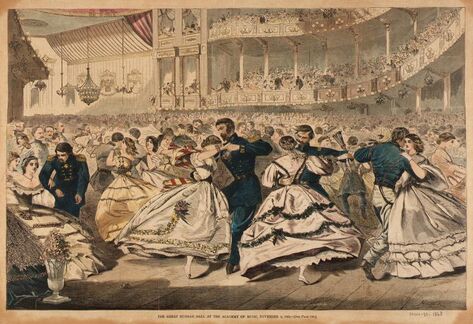Social Hierarchy and it's Consequences
During the time of Dostoevsky’s writing, Russia was structured based on an unequal social system where the church, monarchy, and the aristocracy expressed power, while the poor suffered under inhumane conditions.

Unlike many of the temporary writers during the 19th century in Russia, Dostoevsky was not born into high ranking. Because of this, he explored the lives of “the insulted and the humiliated” and accidental families (Morson). His father was a military surgeon, who worked at the Mariinsky Hospital for the Poor in Moscow, where he treated people who were unable to afford healthcare. However, even though Dostoevsky’s family name was registered in Moscow’s registry of hereditary nobility, he lacked the social prestige of many of his noble peers, making his position in the Russian social hierarchy ambiguous (Frank, “Dostoevsky”).
Social Hierarchy & The Idiot
Dostoevsky’s works are structured by strict social hierarchies that can be understood through the descriptions of characters and their wealth, gender and, most importantly, rank, rather than personality characteristics of the individual.
In The Idiot, the novel depicts differences between the aristocracy, the middle classes, and the lower classes and how the classes seem to be “out of place”. One of many examples would be the moment when Mrs. Epanchin comes to visit Myshkin after his seizure, and she is horrified by the people Myshkin is surrounded by, that came to visit him, who are mostly from the lower class. “Not to mention the fact that some of those present were particularly detestable in her eyes” (Dostoevsky, 248).
The impact of a downfall in social status can be seen in Ganya “he looked with hate and loathing on the poverty ad downfall of his family” (Dostoevsky, 483). Ganya’s family has experienced a fall from grace due to his father, General Ivolgin, who rose to the rank of general within the army but his desire for alcohol prevailed. Due to this, his family needs to rent out rooms to make ends meet, and Ganya finds this embarrassing.
Consequences of Social Hierarchy
Striving towards social status can lead to serious problems and outcomes, such as committing crimes, losing a sense of self to fit in, and unacceptable behaviours (Chappel). These are described by Dostoevsky and result from social stratification (condition where people do not have equal access to resources).
In The Idiot, we can see examples of rebellion towards the unjust system created in Russia through social statuses. For example, Ippolite’s “Necessary Explanation” is a description of why he chose to embrace nihilism because of the societal conditions in Russia. Nihilism is a condition in which all ultimate values lose their value (Webster). One can understand how the surroundings would impact an individual for them to view that there is no use in values, given that society does not follow them and the immoral is striving.
Nastasya Fillipovna can be seen as the most rebellious of all the characters. She was born into high rank, but her reputation was ruined before she had a chance to strive. As a result, she does not accept any of the unfair treatment, prejudice from others and exhibits behaviours such as throwing Rogozhin’s money in the fire, refusing to be married to Ganya because she knows it would be because of money. Her behaviours, even though seen as unfit and rebellious, can be seen as her actions against authority and hierarchy within the Russian society.
Work Cited
Chapple, Richard L. “A Catalogue of Suffering in the Works of Dostoevsky: His Christian Foundation.” The South Central Bulletin, vol. 43, no. 4, [Johns Hopkins University Press, South Central Modern Language Association], 1983, pp. 94–99, https://doi.org/10.2307/3187246.
Dostoesvky, Fyodor M. “The Idiot”, 1 Jan. 1869. Public Domain, retrieved from
https://books.apple.com/ca/book/the-idiot/id395539815
Frank, Joseph. “Dostoevsky”. The New York Times, 30 June 2002.
https://www.nytimes.com/2002/06/30/books/chapters/dostoevsky.html
Homer, Winslow. “Great Russian Ball at Academy of Music- Nov. 5, 1863”. (n.d.)
Retrieved from https://americanart.si.edu/artwork/great-russian-ball-academy-music-nov-5-1863-10724
Morson, Gary Saul. “Fyodor-Dostoevsky”. Encyclopedia Britannica, 5 Feb. 2022,
https://www.britannica.com/biography/Fyodor-Dostoyevsky
Reyfam, Irina. “Service Ranks.” Dostoevsky in Context, edited by Deborah A. Martinsen and
Olga Maiorova, Cambridge University Press, 2015, pp. 98- 105. doi:10.1017/CBO9781139236867.012
Webster, Merriam. “Nihilism”. Merriam Webster Dictionary.
https://www.merriam-webster.com/dictionary/nihilism